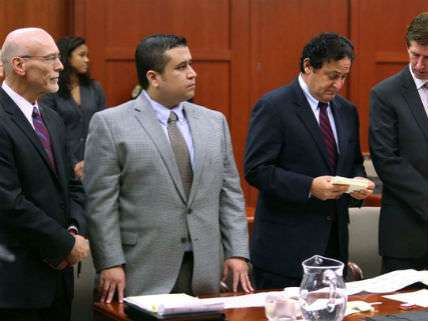The New York Times Admits Its Reporting on the Trayvon Martin Case Has Been Fundamentally Wrong

A New York Times story about jury selection in George Zimmerman's trial says the case is "spotlighting Florida's Stand Your Ground law." In the very next sentence, however, the Times concedes "that law has not been invoked in this case." As I have been saying since this story began attracting national press attention, Zimmerman's defense does not hinge on the right to stand your ground when you are attacked in a public place because he claims he shot Trayvon Martin during a violent struggle in which there was no opportunity to retreat. So why is "Florida's Stand Your Ground law" relevant? According to the Times, because it "was cited by the Sanford police as the reason officers did not initially arrest Mr. Zimmerman." But the provision cited by police, although it was included in the same 2005 bill that eliminated the duty to retreat, has nothing to do with the "stand your ground" principle.
The police said they did not charge Zimmerman right away because of a provision that prohibits a law enforcement agency from arresting someone who claims to have used deadly force in self-defense "unless it determines that there is probable cause that the force that was used was unlawful." In other words, the fact that Zimmerman killed Martin (which he has always admitted) was not enough; the police also needed reason to doubt his self-defense claim. We can argue about whether that is a reasonable requirement, but it is completely distinct from the right to stand your ground. Even a state that imposes a duty to retreat could still require police to meet this test before arresting someone who claims self-defense.
From the beginning press coverage of this case has routinely conflated these issues, implying that Florida's definition of self-defense is so broad that it gave Zimmerman a license to kill in circumstances that did not justify the use of deadly force. The New York Times has been one of the worst offenders in this respect, running one story after another that either obscured or misstated the legal issues while suggesting that both Martin's death and the delay in arresting Zimmerman somehow hinged on the absence of a duty to retreat. Now the Times is implicitly admitting that its reporting was based on a fundamentally mistaken premise.
Opening arguments in Zimmerman's trial are expected next week.



Show Comments (67)